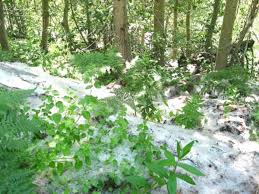The Pollen Menace in Kashmir
By Rameez Makhdoomi
Kashmir has been grappling with the issue of pollen menace for decades, primarily due to the widespread presence of Russian Poplar trees.
It has causes great distress to the common masses.
During the spring and summer months, particularly in May and June, the peak pollen shedding season, residents and visitors alike can be seen wearing masks to protect themselves from the allergens.
This gives rise to throat allergies and other health problems due to pollen circulating in air.
It is worth mentioning here that Russian Poplar trees, while economically beneficial for their wood used in fruit boxes, have a darker side. Their pollen grains are highly allergic and detrimental to human health, exacerbating respiratory disorders like asthma. Despite the administration’s previous ban on planting these trees, a large number of Russian Poplars continue to thrive in Kashmir, contributing to the pollen menace.
From time to time eminent activists and health experts have repeatedly highlighted the issue, emphasizing the need for concrete action. They suggest that the administration must take a stricter approach to enforcing the ban and preventing the large-scale sale of these plants.
Some experts also point to the increasing cultivation of ‘Keekar trees’ (Robina Pseudoacacia) as a contributing factor to the growing pollen phenomenon.
In this regard, people of Kashmir are calling for effective measures to control the pollen menace, particularly in Srinagar and other areas. With pollen known as not a good thing the time to address this issue is now.
It is time to strengthen our ecology with guidance species of trees that will both be helpful in increasing the overall oxygen bank and also fighting the rising pollution especially the air pollution.
